Choose
your bird
Before you buy!
Parrots can live 20 years or more—so be sure you’re ready for a long-term commitment!
All birds require consistent handling and socialization to stay friendly (but some more than others). Mean birds are caused by lack of handling (and sometimes hormones)! It’s also a good idea to have your bird interact with as many different people as possible to prevent them becoming aggressive toward everyone but their chosen human. Diet can also play a role in aggression so be sure to consult an avian veterinarian for proper nutrition advice.
All birds make noise! Birds are highly social creatures, so vocalizing (ie: screams and squawks) is an integral part of their natural life. It cannot be discouraged. However, you can reward birds for using more pleasant vocalizations (ie: talking and whistling) and encourage them to use those more often than harsh noises.
All parrots bite sometimes! Parrots in the wild will bite each other to warn them to get away, and as pets, they won’t hesitate to let us humans know we’ve gone too far or made them uncomfortable. It’s best to learn to respect their boundaries in order to avoid being chomped. Some species bite harder than others, so bear this in mind if trying to add a parrot to a family with small children.
Every bird has their own unique personality and may not fit the mold that is typical of their species. Much like adopting a puppy, or even having a human child, you never really know what you’re going to get! For that reason, it’s best to have an open mind about how your bird-owning experience will be. Parrots are amazing and emotionally intelligent animals who deserve love that is unconditional!
All our babies are hand-fed, gender-confirmed, and disease-tested! Contact me for pricing
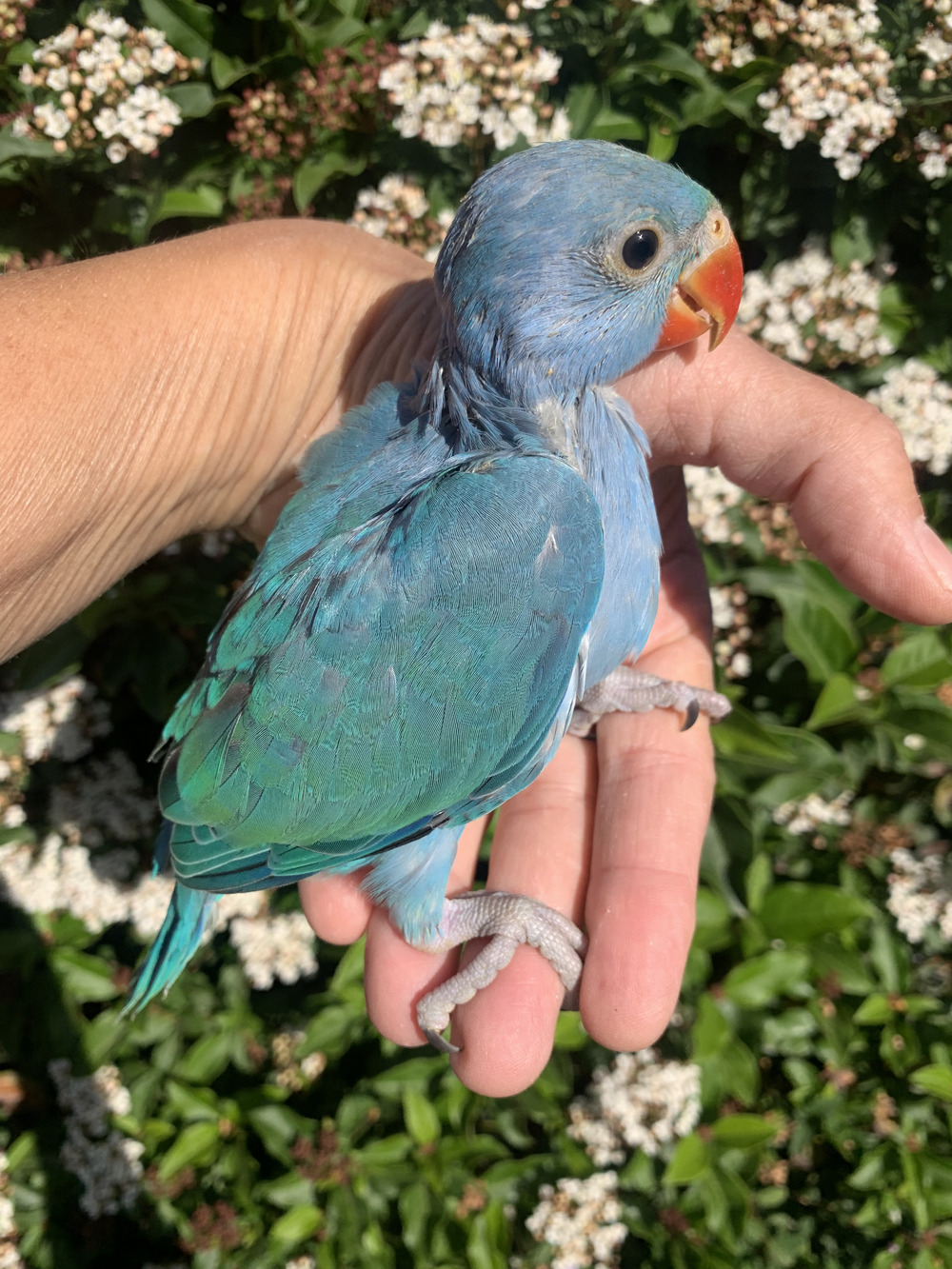
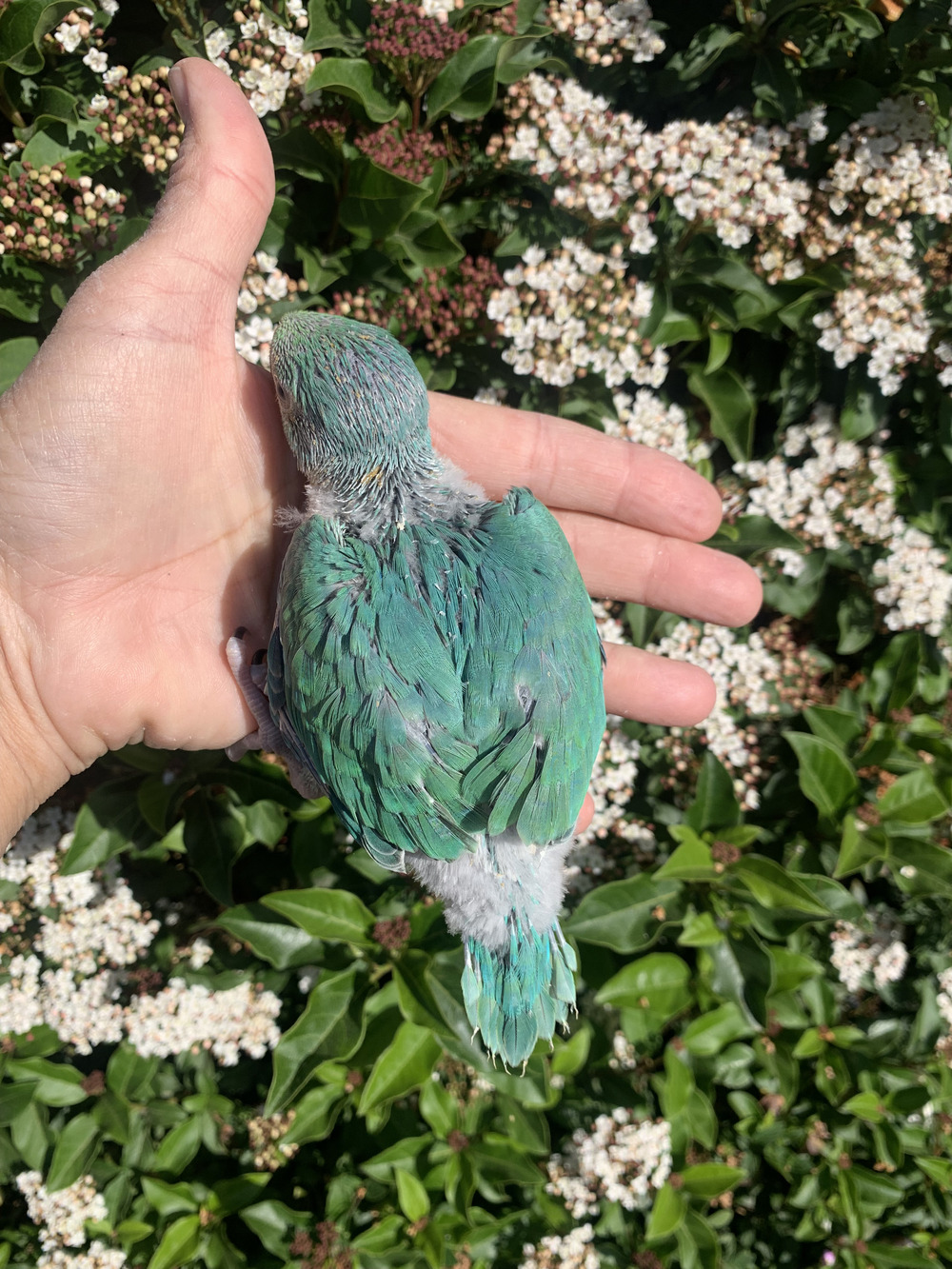
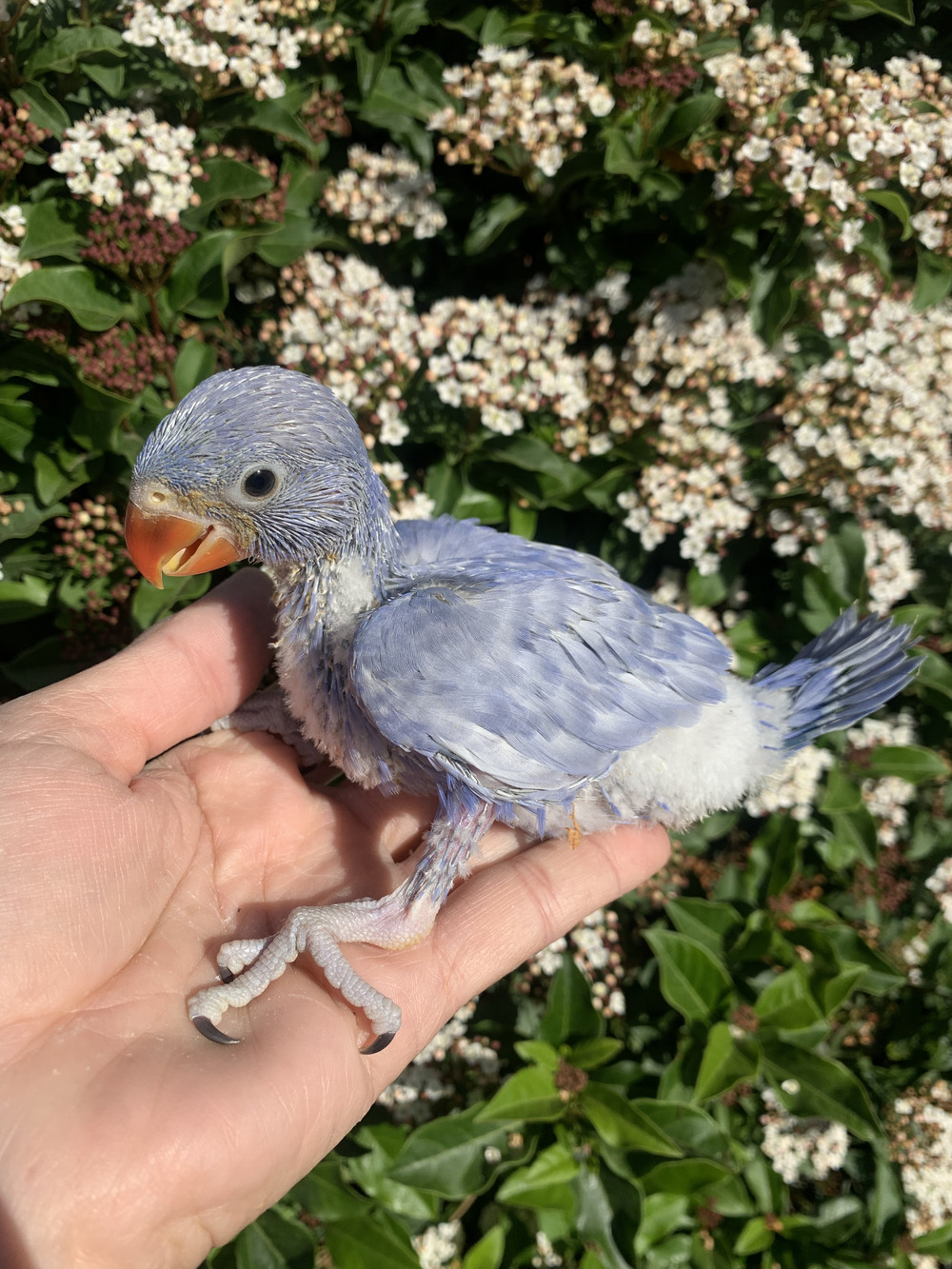
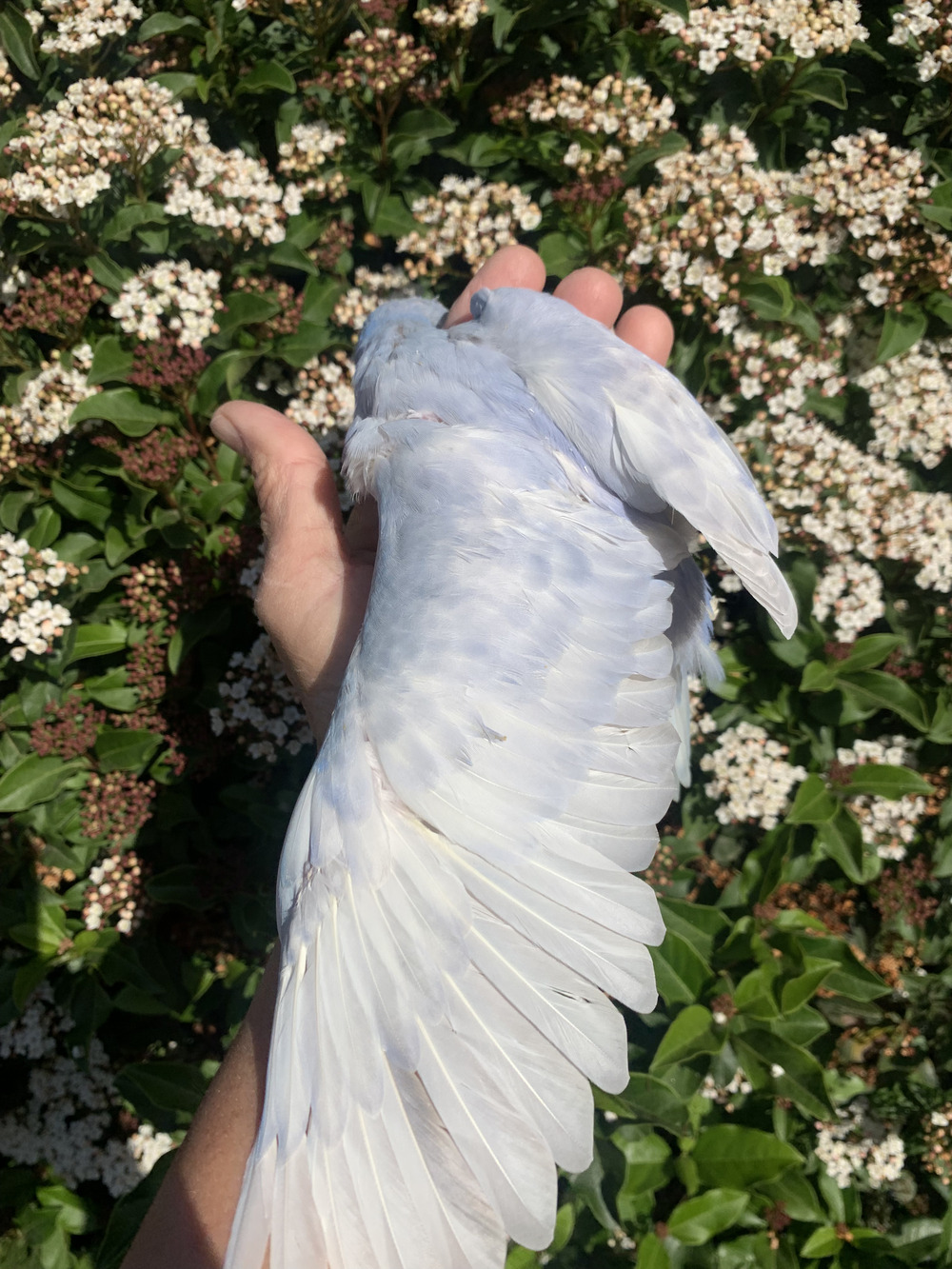
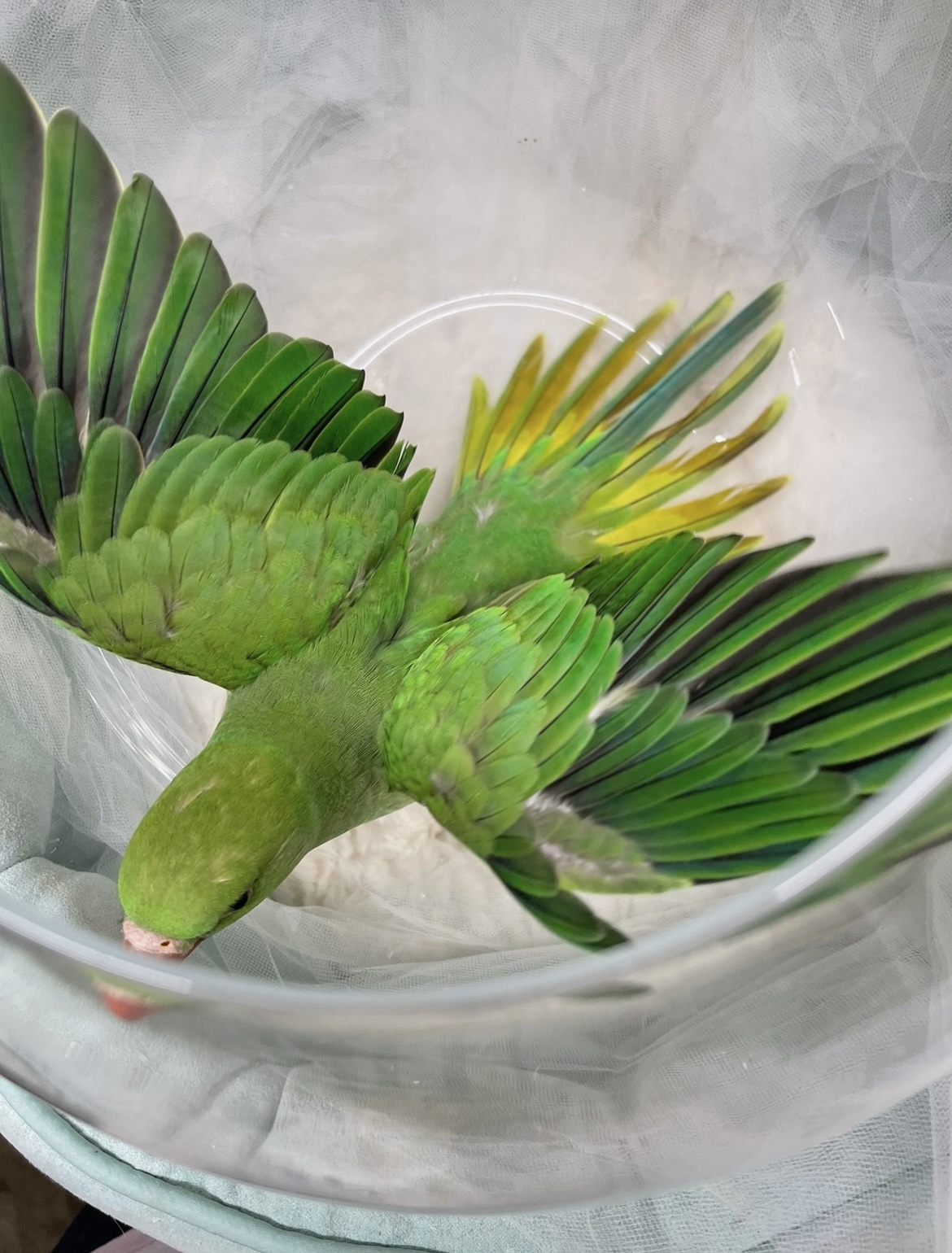
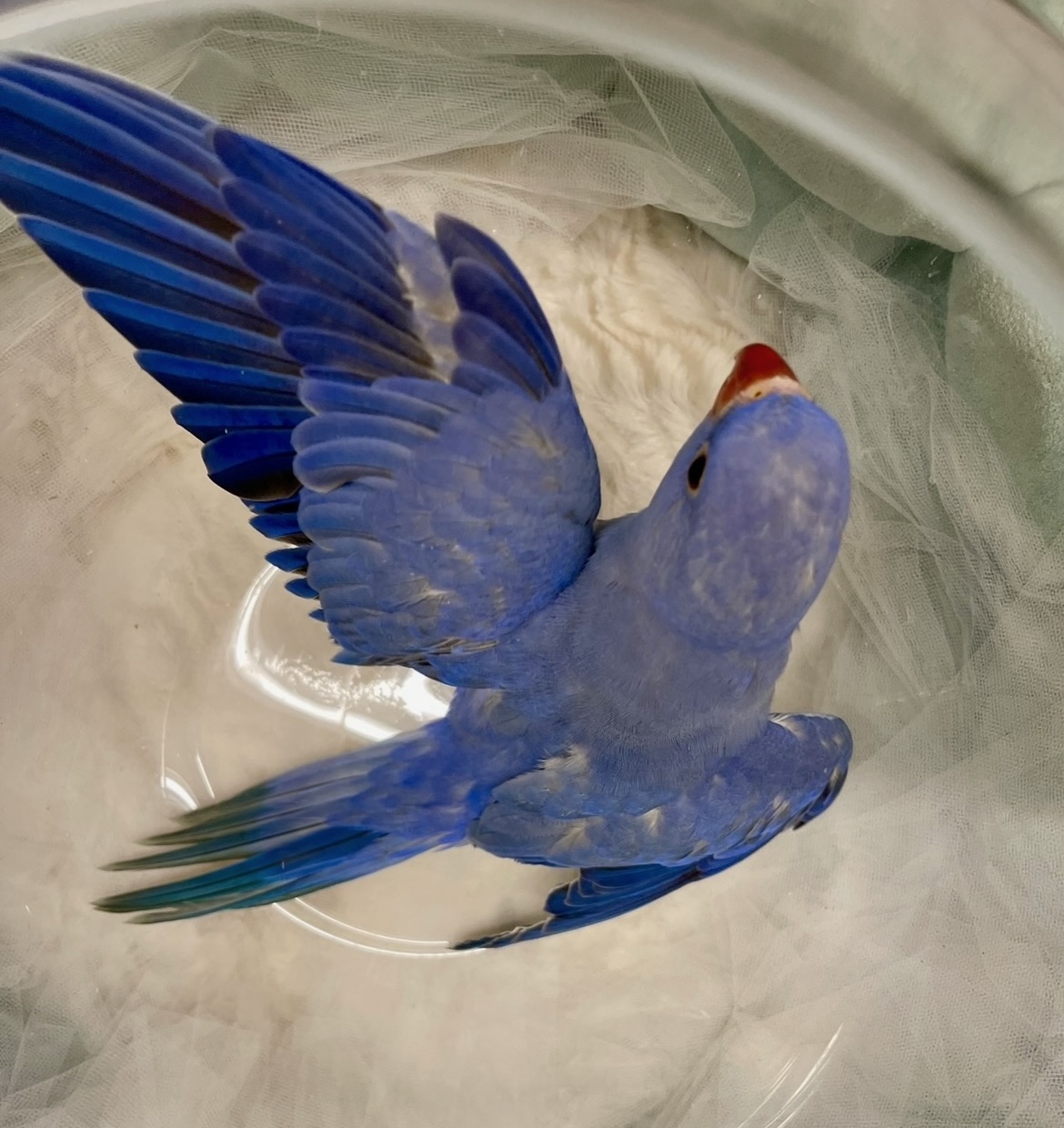
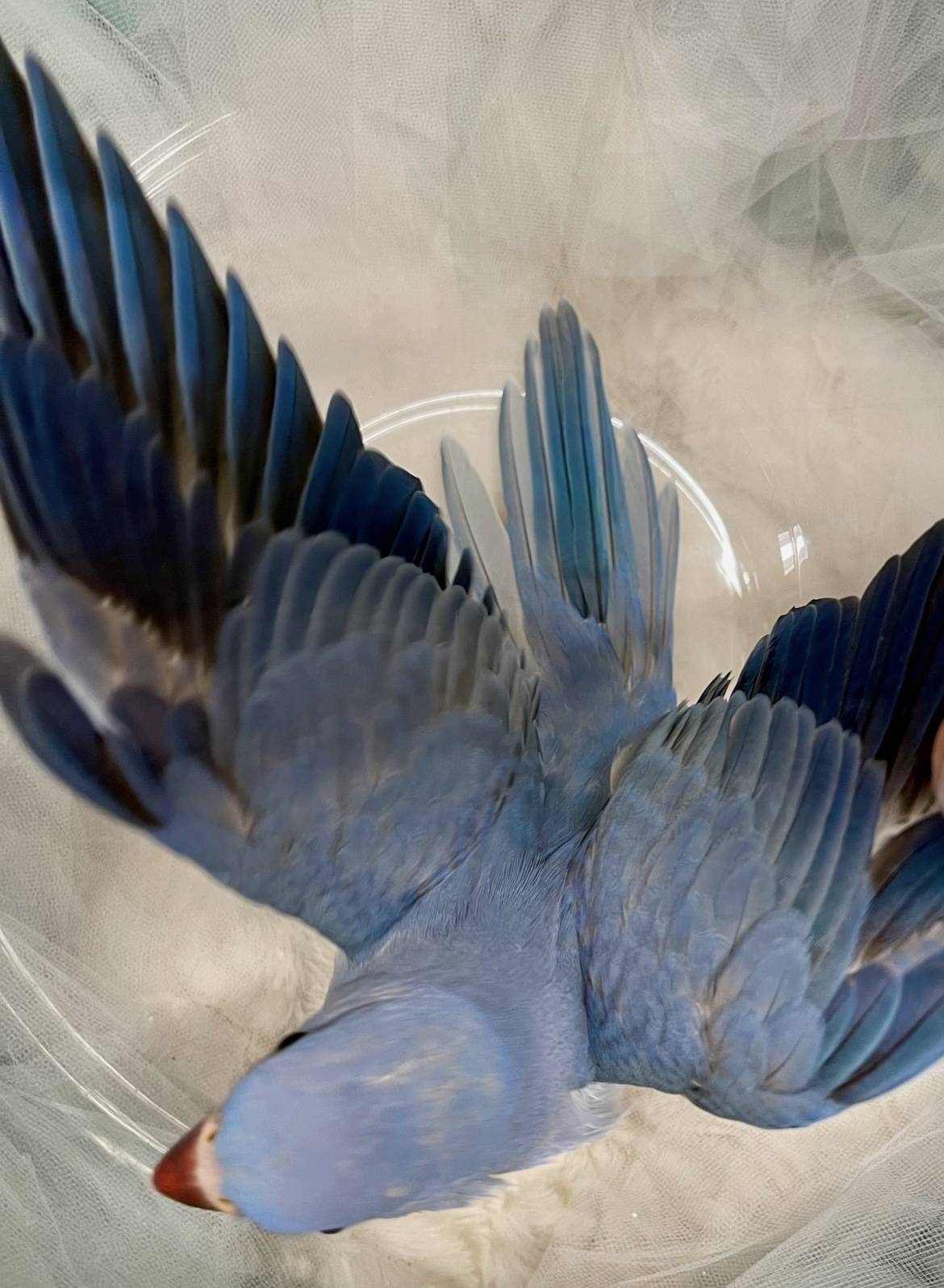

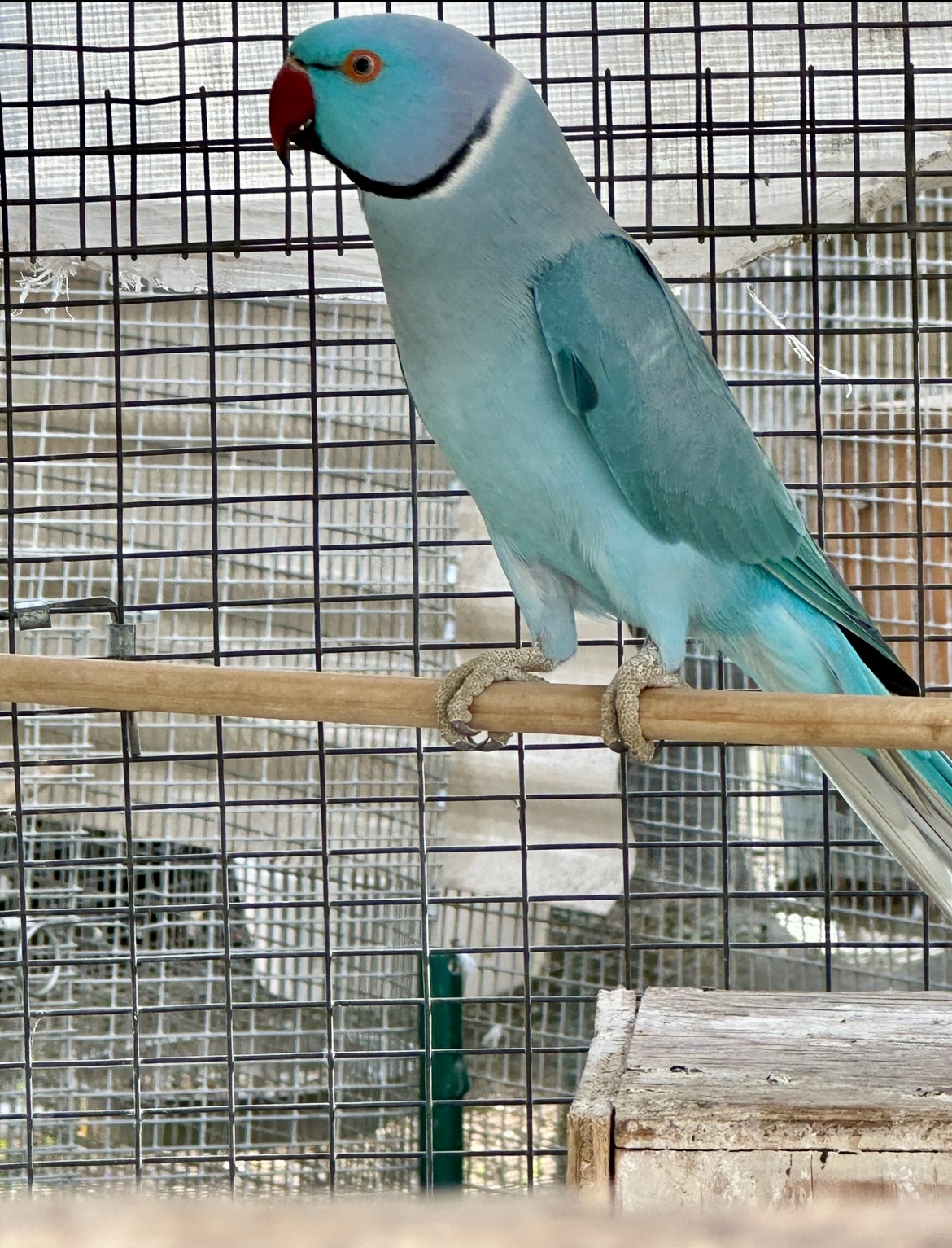
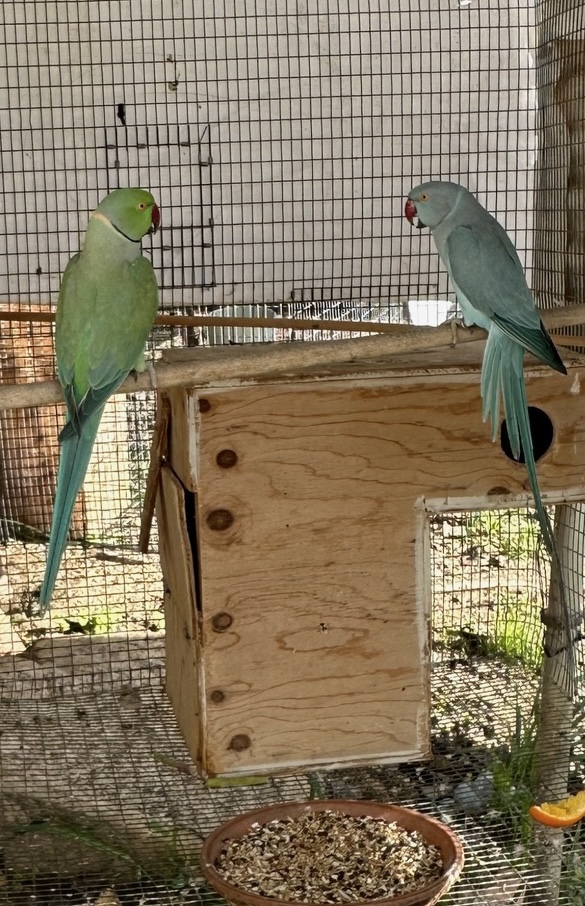
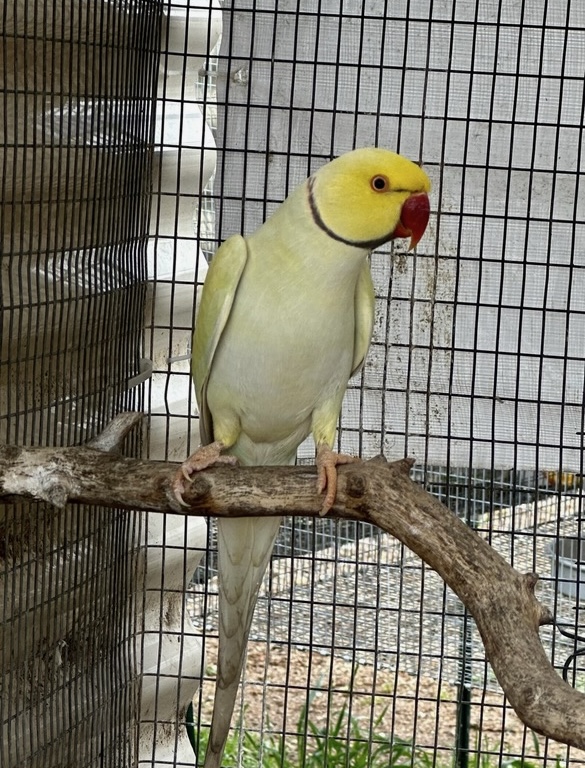
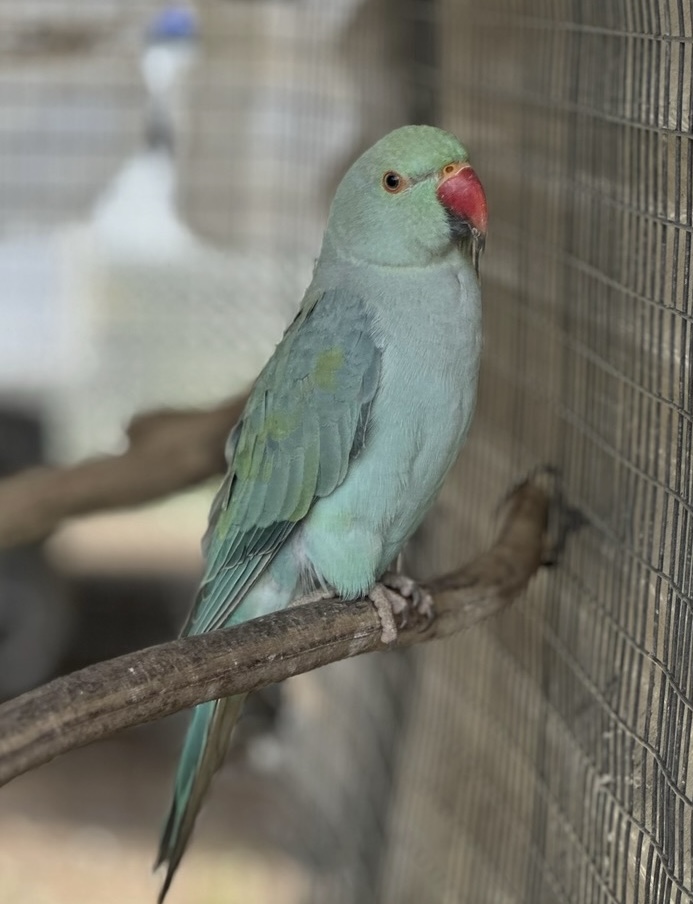
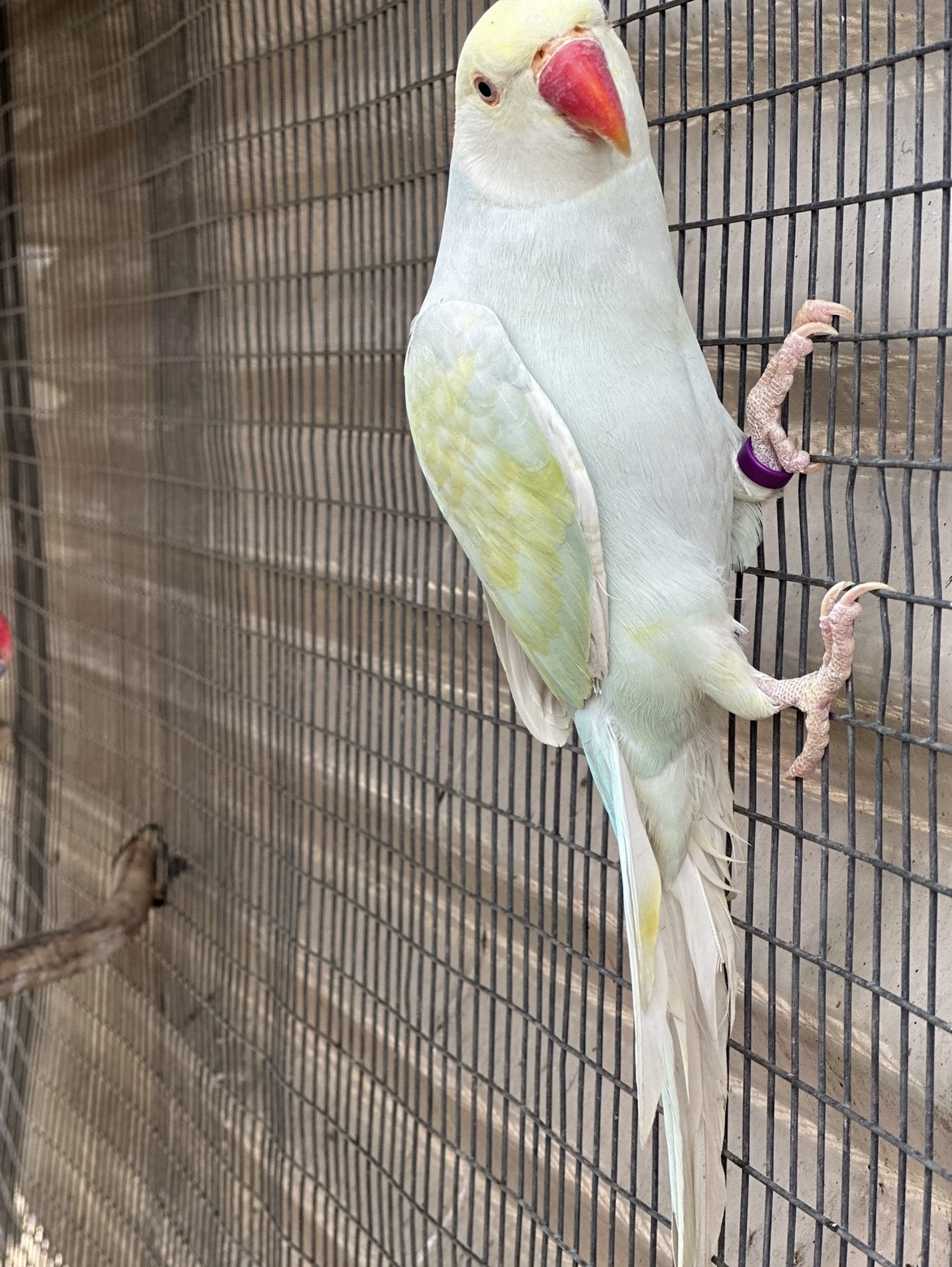
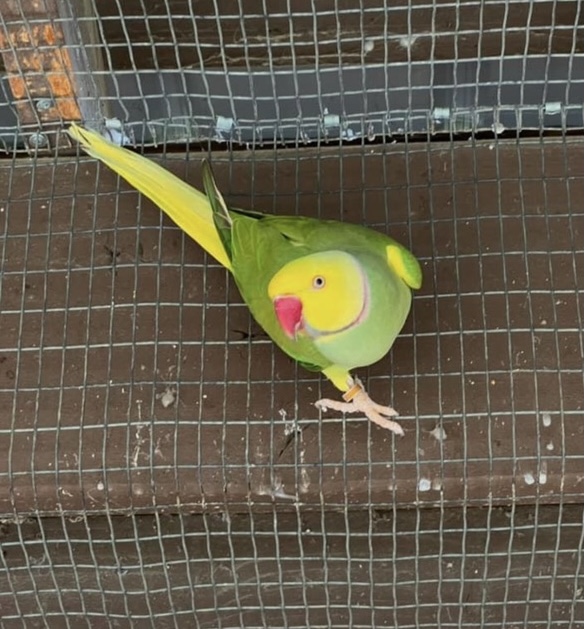
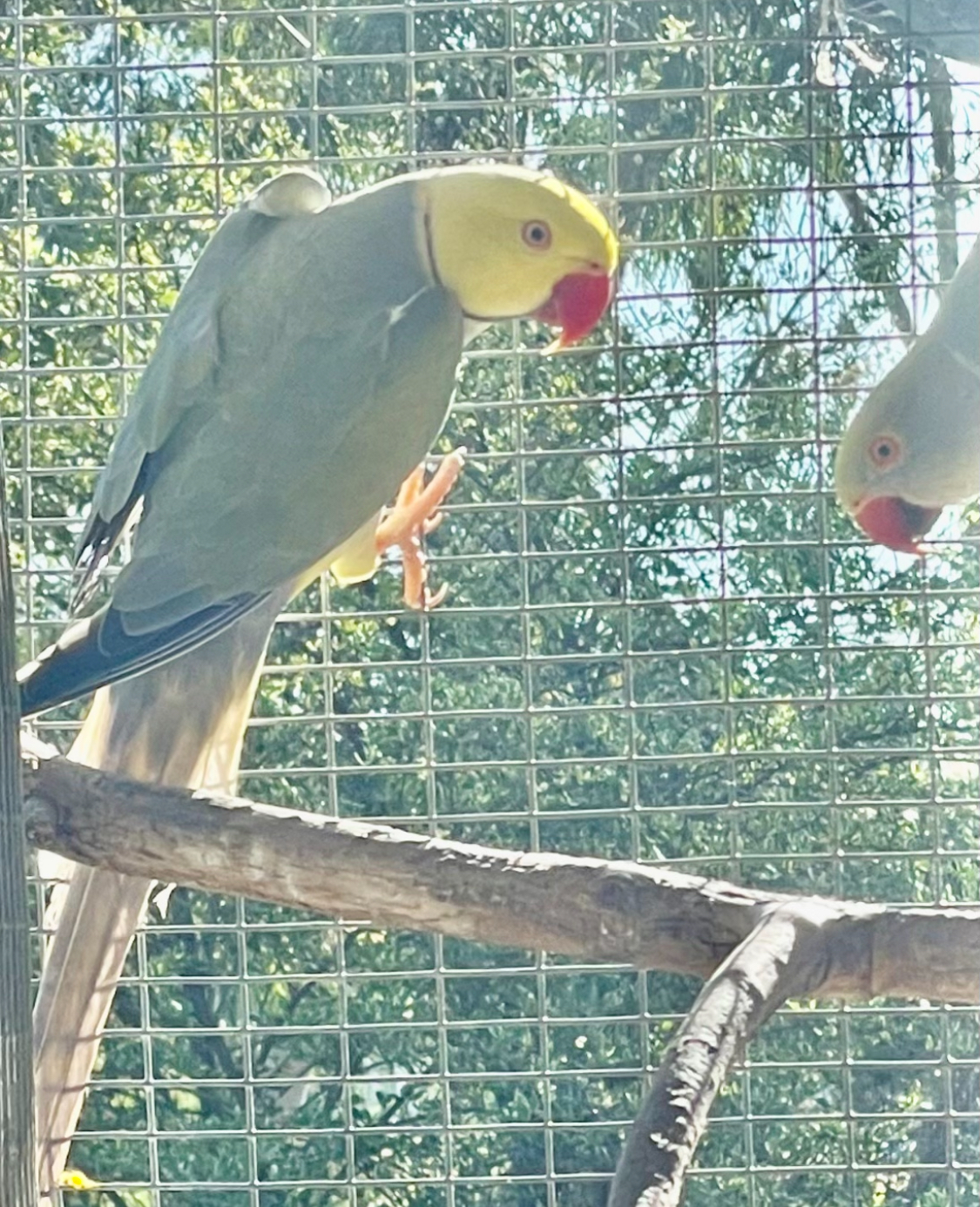
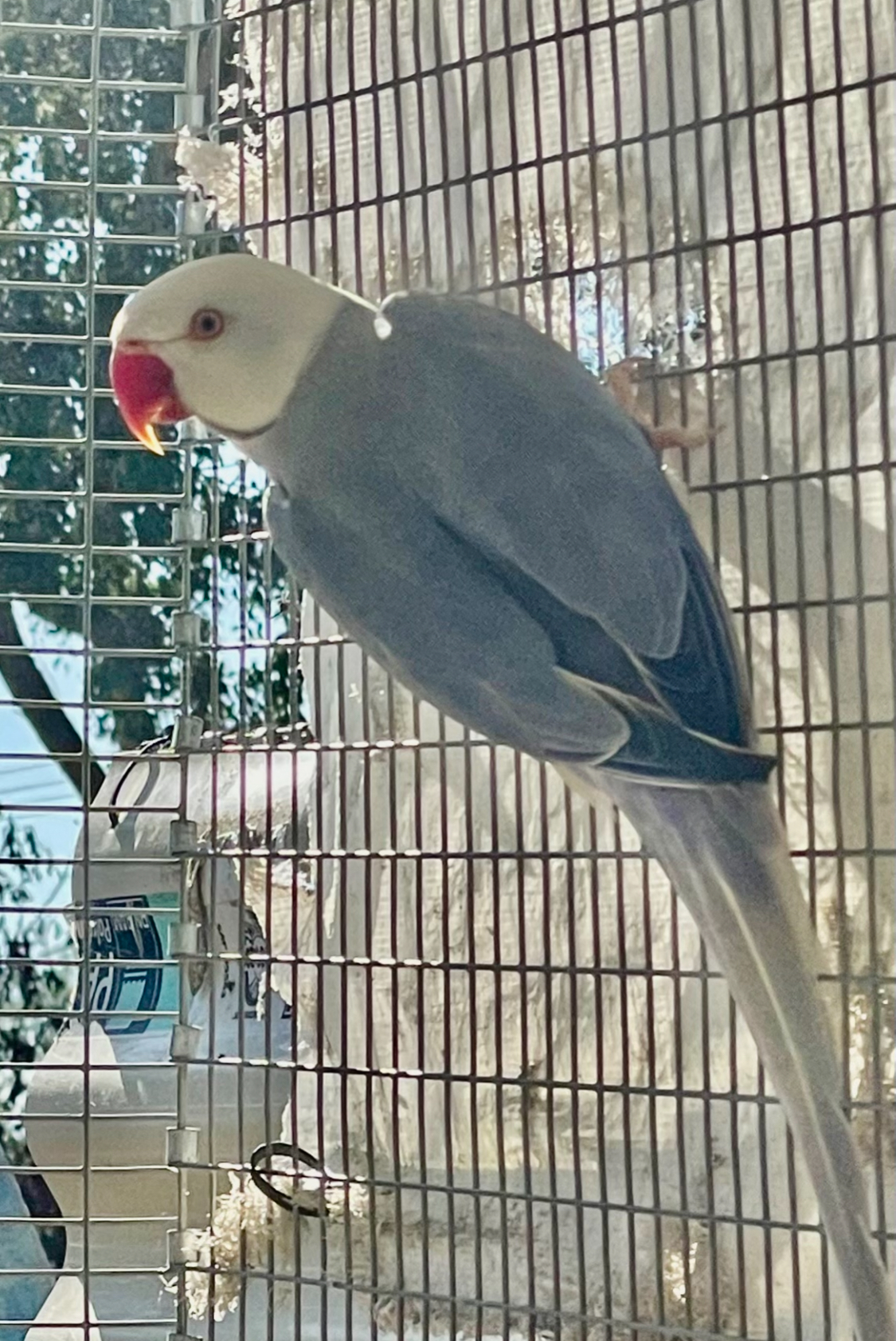
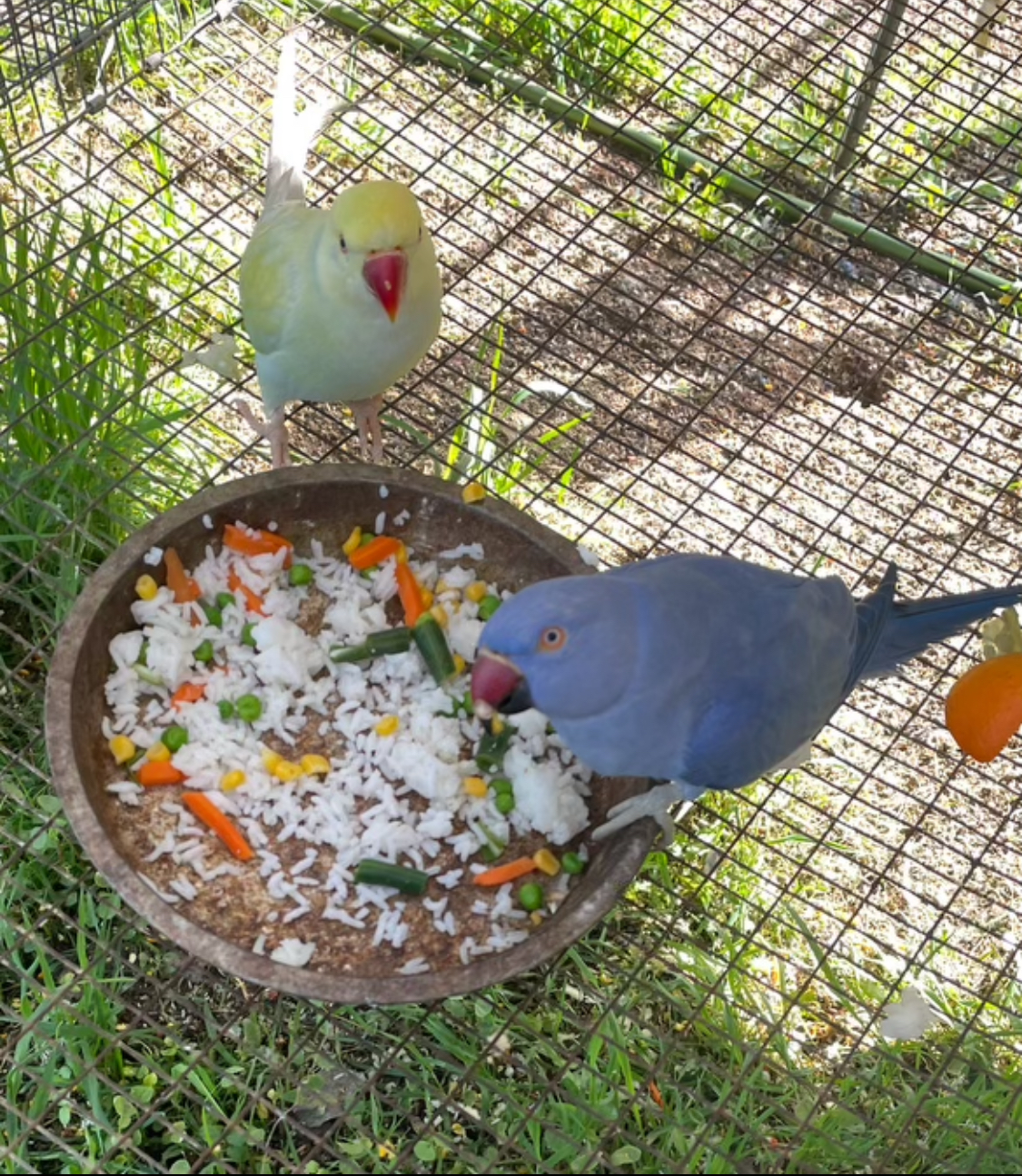
Indian Ringnecks
All Colors and Mutations
These energetic and intelligent birds are known for their curiosity, fun-loving personalities, and their sweet speaking voices! While their speech capabilities are impressive, we must warn that every bird has its own unique habits and not every Indian ringneck will learn to speak.
Their boisterous energy and sharp minds make them GREAT at learning tricks, which is perfect enrichment for them and a wonderful bonding opportunity!
Indian Ringnecks are NOT known for being cuddly, but will show affection to their favorite humans in other ways (they LOVE to give “kisses”). They are more independent than some other parrot species, but should still be handled daily in order to maintain a tame, friendly demeanor. Be warned–they are known to go through what’s called a “bluffing stage” when they reach birdie-puberty where they become temperamental/bitey, but don’t worry, it will pass!
These birds LOVE to explore and investigate, so be mindful of potential hazards in your home and keep a close eye on them when outside their cage!
Colors/mutations include:
- Solids (green, blue, yellow, violet)
- Lacewings (blue/white, blue/green)
- Cleartails (blue w/ white face, green w/ yellow face)
Ask about my imported Cleartails verified from Magnolia Bird Farm!
Mustached Parakeets
Like their cousin the Indian Ringneck, Mustached Parakeets are super fun and super smart! They are a bit more relaxed than the rambunctious IRNs, which some may appreciate. They are also not super cuddly, but that doesn’t mean they won’t show love to their owners by flying to their shoulder and talking sweetly. These birds love to interact with their favorite humans.
Owners of mustached parakeets often report their bird prefers talking and whistling over screaming, which could possibly be encouraged with the right training. Some also say they’re a bit bossy and will not hesitate to remind you it’s time to pay attention to them (which you may actually appreciate)!
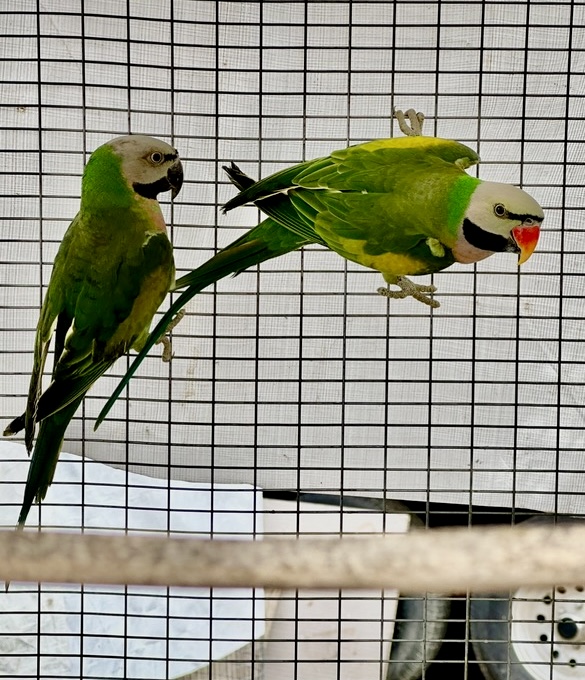

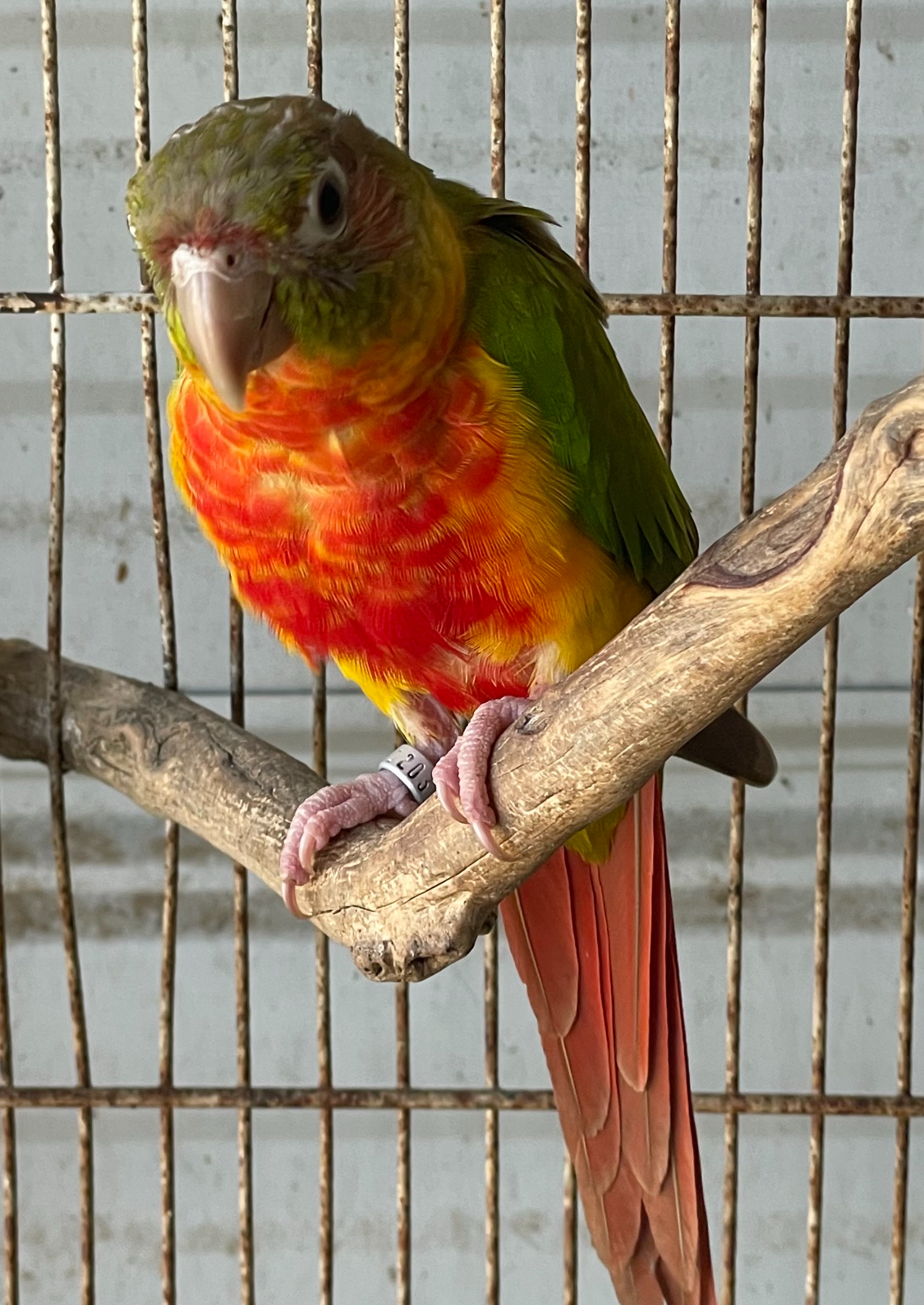
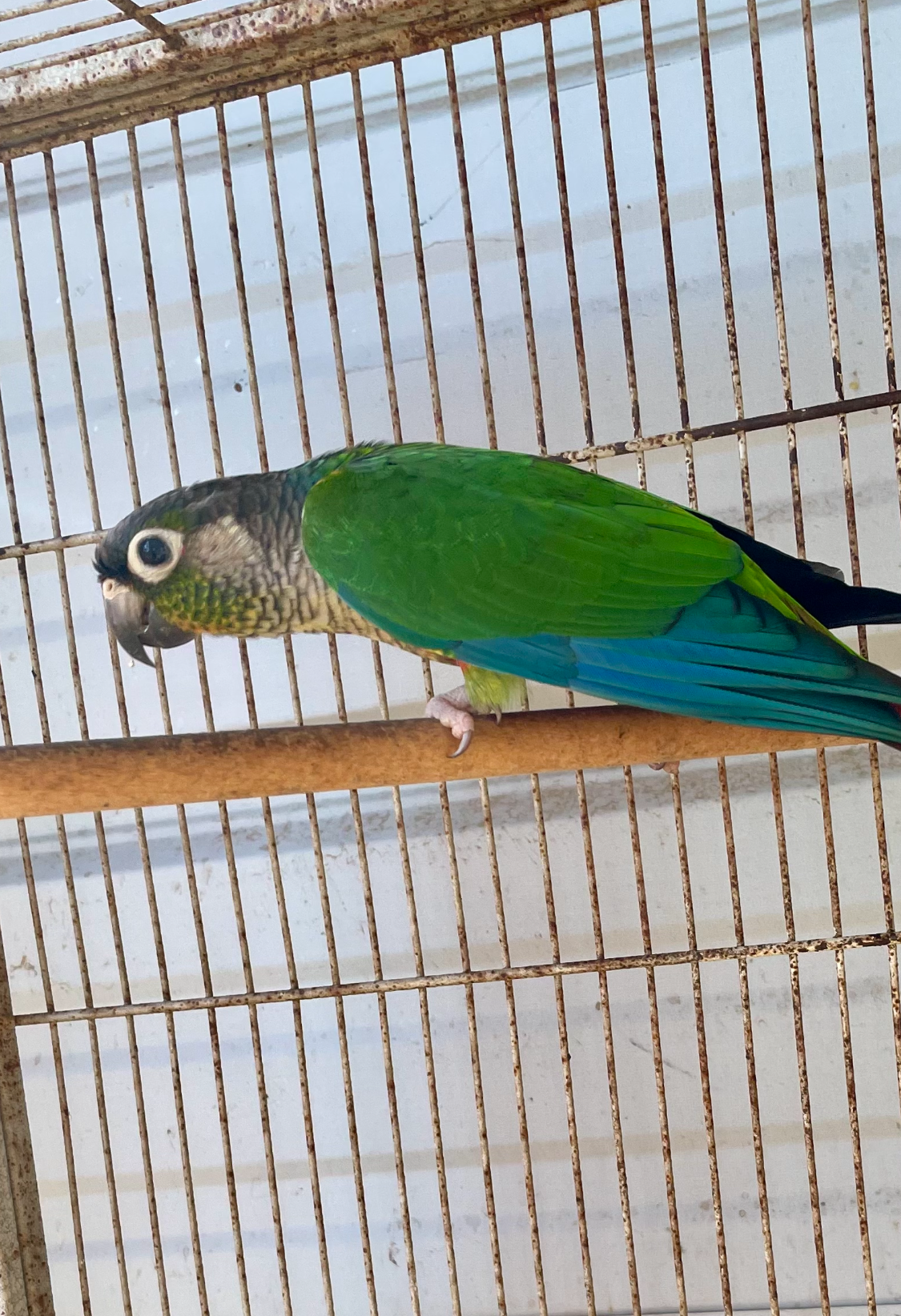
Green Cheek Conures
These are great beginner-birds!
They are generally friendly and outgoing, and tend to be more gentle and peaceful. They are usually much more cuddly than most other parrots, often wanting nothing more than to be snuggled up to their human’s face. They are pretty easy-going birds, and adapt well to change compared to some more sensitive species. They are not known for being especially territorial, and usually get along well with other birds.
Green Cheeks are often described as having big bird personalities in little bird bodies! They are very intelligent and can even learn to mimic some words/sounds (in a cute, low-pitched, squawky voice). They tend to be more gentle with their beaks, making them a good candidate for a home with small children (they will still bite though so the kids will need to be taught how to interact with them).
Crimson Rosellas
While Rosella’s are not as interested in human interaction as some other species, they can still be a very fun pet if you don’t mind mostly just observing it. They are more of a “hands-off” kind of bird. That being said, many Rosella owners report they are still able to bond with their bird and even train them to do some simple tricks!
These are not cuddly birds and unlikely to tolerate petting, but would be happy to ride around on their human’s shoulders. They can also make fantastic aviary birds, since aside from being strikingly beautiful, they also stay friendly with humans if interacted with daily.
Rosella’s can also learn to say some words and whistle some tunes. They are great whistlers!
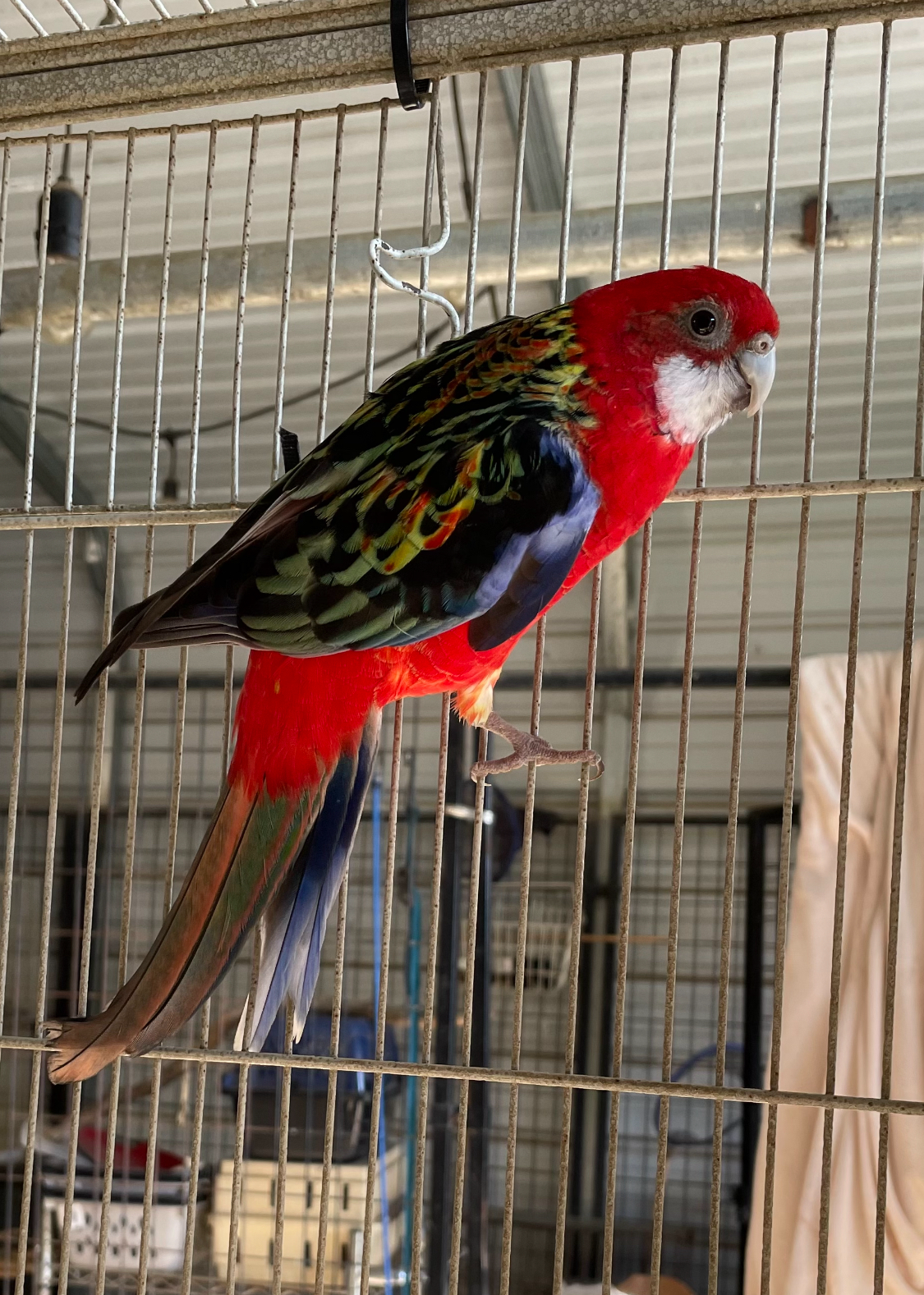
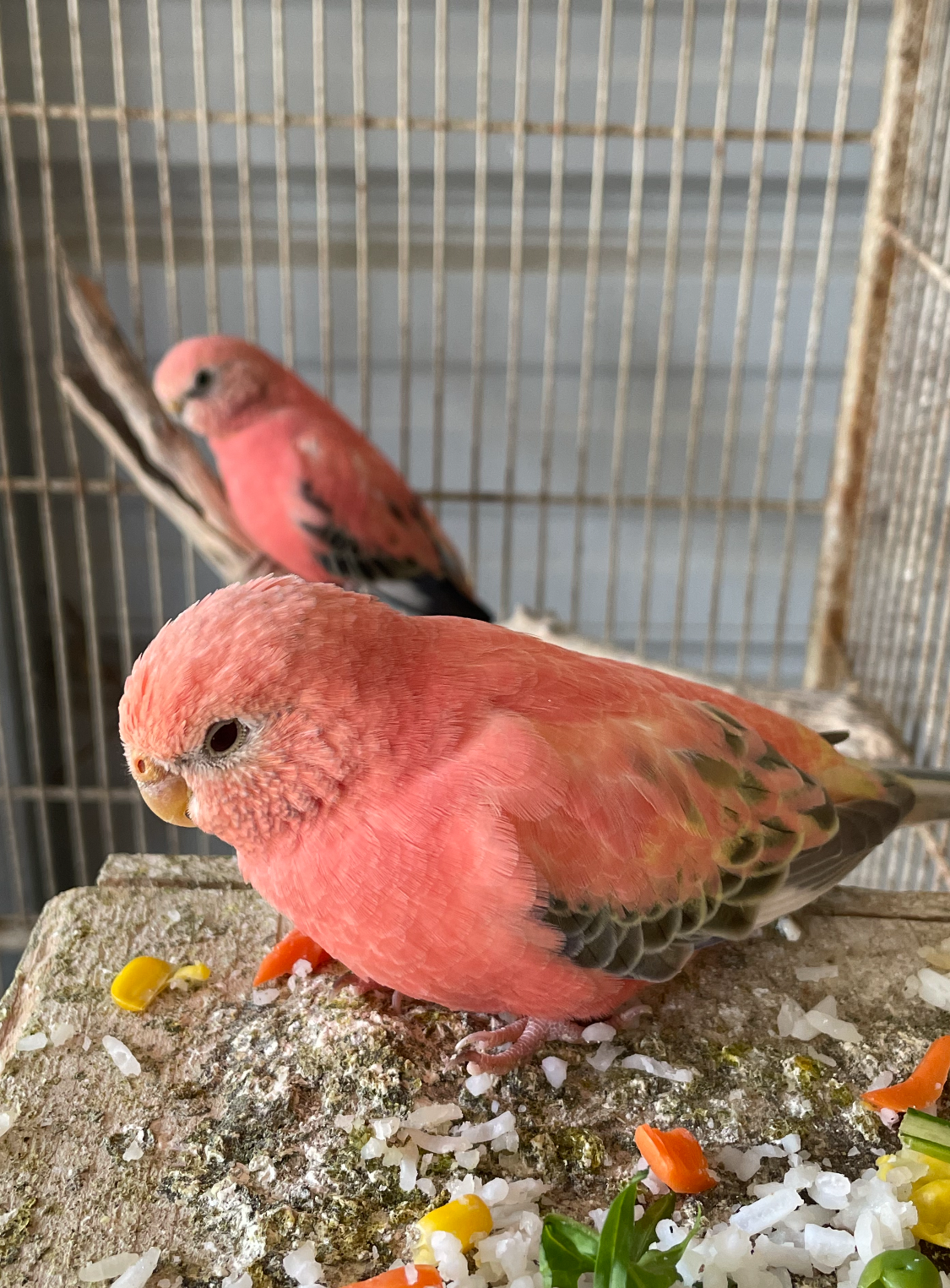
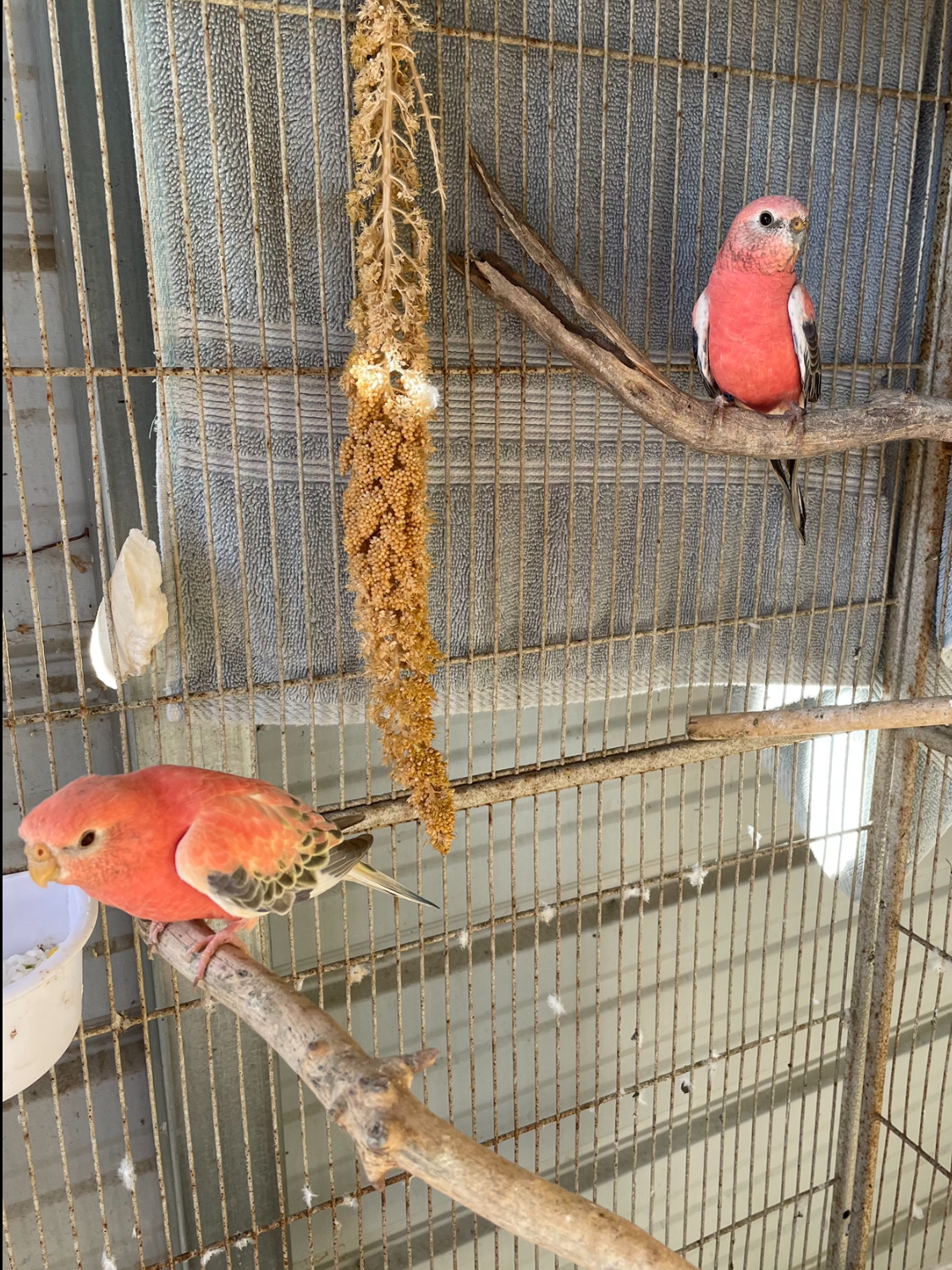
Bourke's Parakeets
These are great apartment birds! They don’t really scream, mostly just gentle chirp and whistle, and tend to stay calm/docile during the day. They tend to do best in pairs or groups, which would make them a great candidate for someone who works full time, since they can entertain each other all day.
Even though these are often considered aviary birds, requiring lots of flying space, they do love human interaction! They’re not fans of cuddles/petting, but enjoy hanging out with their human and engaging with them.
Unlike many parrot species, Bourke’s tend to be friendly with all humans rather than only liking one person. Their beaks are much more gentle as well, so bites are more tolerable if they do happen.
One thing to note about these birds is they are ground-dwellers by nature, so owners would need to be cautious not to step on them, and they may not be great pets for people who also have dogs/cats.
Ready for your new bird?
Message me to reserve your baby!
